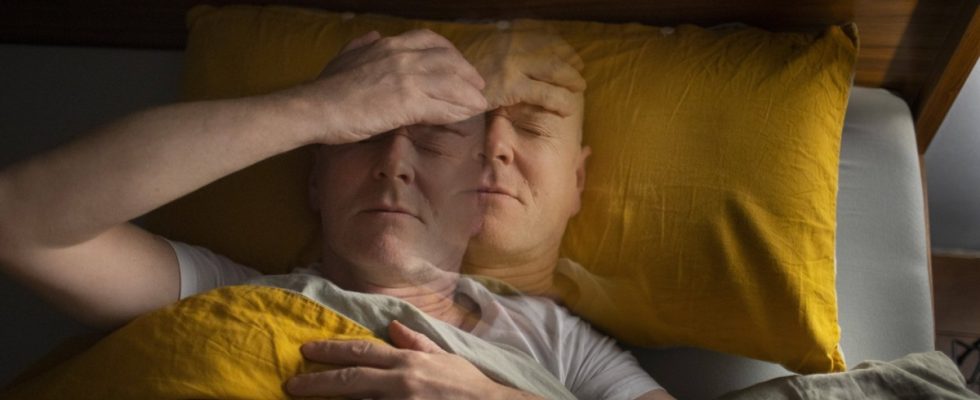When the heart is sick, it is often not very easy to get a good night’s rest: every third heart patient has significant sleep problems. This has long been classified as psychological or as a result of the “systemic disease” that means a diseased heart. After all, heart disease is worrying and often affects overall health. But how actually? Munich scientists have now found that out.
In fact, there is a powerful mechanism with an unfortunate chain of diverse processes in the body behind the sleep problems of heart patients, such as the team around Karin Ziegler and Stefan Engelhardt from the Technical University of Munich especially in science magazine Science has reported. The results show how complex the various organs in the body work together with the nervous, endocrine and immune systems.
Because as a result of the heart disease, immune cells are activated, the macrophages. They are supposed to help heal the heart, but in doing so they attack the nerves that supply the pineal gland, making the organ less easily activated; as a result, it produces less of the hormone melatonin, which in turn controls the day-night rhythm. It’s over with the regular night’s rest.
It has long been known that there is something wrong with melatonin production in heart patients. But until the research work of the Munich pharmacologists, it was completely unclear how this could be related. “At first glance, there is no direct connection between the heart muscle and the pineal gland,” says Stefan Engelhardt. Because the small gland in which the philosopher René Descartes once located the seat of the soul is located in the middle of the brain. However, the origin of the nerves that lead to the pineal gland is a nerve node (ganglion) in the neck, which also contains the nerve cells that monitor the functioning of the heart.
“To illustrate our results, you can imagine the ganglion as an electrical switch box,” says Stefan Engelhardt. “With heart disease, figuratively speaking, a problem with one wire can result in a fire in the switch box that also destroys another wire.” There may be similar connections in other organs. Nerve knots could therefore provide a completely new research approach when it comes to understanding the diverse consequences of diseases on the entire body.
The discovery could open up new therapies for heart patients with insomnia
Pharmacologists Harvey Davis and David Attwell from University College London write that it is possible that the Munich discovery could also be used to develop therapies for heart patients with sleep disorders in a comment in Science. Because the Munich team was able to bring the melatonin production in mice to the normal level by destroying the immune cells in the affected ganglion with drugs. However, this was only possible in the early stages of the disease.
On the other hand, melatonin could help those patients whose nerve cells have already died, says Stefan Engelhardt. “This now needs to be tested clinically in controlled studies.” This therapy would probably be less of a problem than traditional sleep aids. “They are very effective, but can make you dependent,” says Engelhardt. “If you simply replace missing melatonin, then it should actually have very few side effects.”

